“If you’re making art as part of your job, it’s pretty important to stay interested”: Ron Pope on American Man, American Music
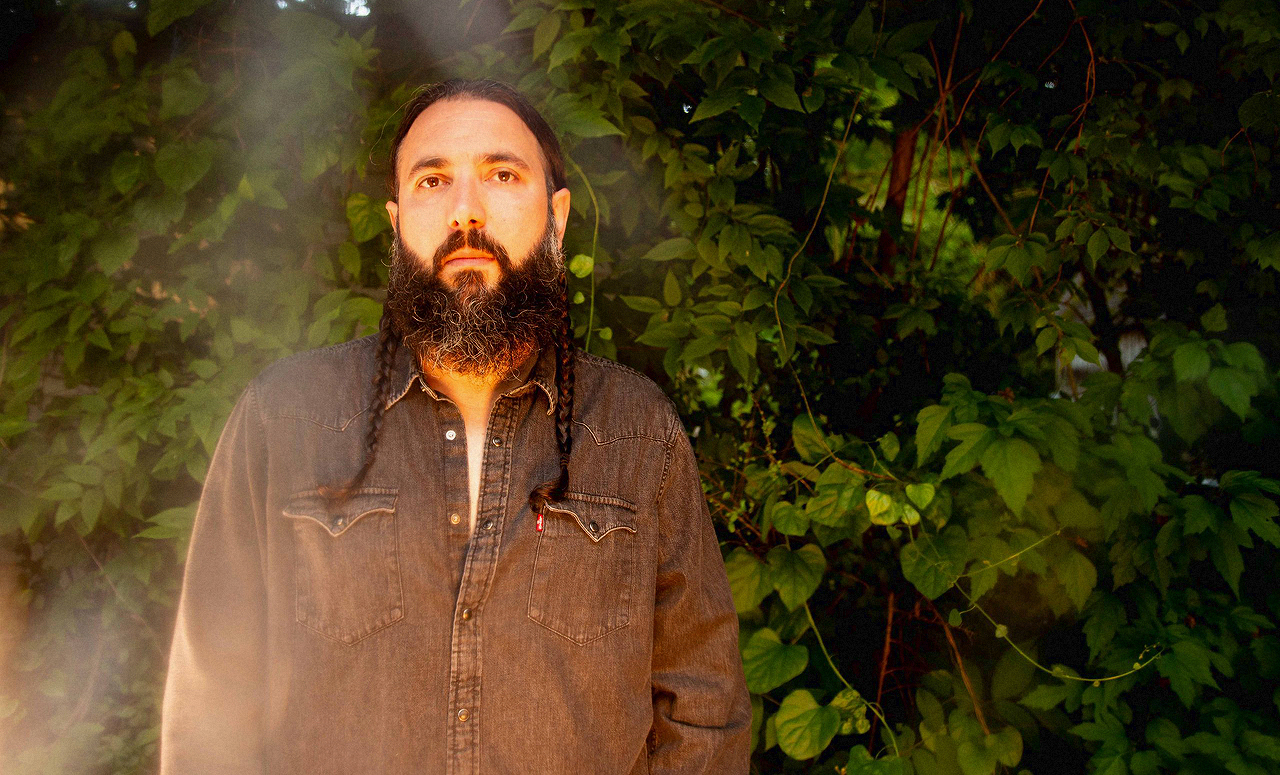
Ron Pope is a musician who has been creating music for 20 years. Having listened to a variety of genres growing up, he exhibits through his artistry the many influences he had as a kid – from hip-hop, rock and metal, to old country and classic soul. He grew to prominence with his then-viral single back in the late 2000s, A Drop in the Ocean, which featured in the third season of Vampire Diaries. Since then, he has been releasing records independently, having founded the label, Brooklyn Basement Records. Despite the constant cycle of music trends due to social media, Pope has never let it change his art, continuously writing songs, telling stories and making honest music.
That’s what his new album American Man, American Music is all about. It’s a long play that recounts two decades of experience within the industry, life on the road, his relationship with his family and tragedies that have come along. Pope just finished the European leg of his Neon and Glass tour in London before going back to the States. His set list consists of familiar tracks like Fireflies and of course, A Drop in the Ocean, while also introducing some new ones that will be featured in his upcoming album, the likes of Nobody’s Gonna Make it Out Alive and The Life in Your Years. The Upcoming caught up with the songwriter and musician to talk all about his inspirations growing up, thoughts on the music industry, and what people can expect from his new record.
Can you tell us about your start in the music industry? When you were growing up, what inspired you to make and write music?
Well, I would say I entered music, not the music business, to start. I was surrounded by people who were big music fans. My grandparents were big music fans, my parents were, and my stepdad is a metalhead. I had all these different people and I got so much different music as a kid, and I found music on my own as well. I got interested in classic soul, old country and metal. I got deeply into hip-hop on my own. The first music I ever bought – I bought a tape of the Wu-Tang Clan out of the trunk of a car. I learned about phonics – how to use pieces of words rhythmically to create hooks – from hip-hop. There are certain things you learn from listening to The Allman Brothers, or the Carter family, or Wilson Pickett. But that’s not something I learned there. That’s something I learned from hip-hop.
I just love music. It was always so interesting to me. I had a broad taste in it and I wanted to try everything. One day, I wanted to play the guitar like Albert King or sing like Stevie Wonder, the next day I was listening to recordings made in a hotel room somewhere with one microphone, and then I was listening to Boys 2 Men and Destiny’s Child. I love music, and that’s what led me to become a musician. I love music so much and I have such a broad interest in it; it’s something that I have found a lot of joy and satisfaction from. I ended up in the music business because I was making music and then people gravitated towards it. I had to learn how to navigate the music industry because I didn’t want to let people take advantage of me. I love my music so much, I care about it so deeply, that I didn’t want to be exploited by people who didn’t have the best interest of my art in mind. That’s how I ended up in the music business.
Of the broad range of genres that you have listened to over the years, tell me how you crafted your signature sound and music style?
I have always made a pretty broad assortment of music. I was in a Southern rock band when I was growing up. Over the years, sometimes I’d play blues, sometimes I’d play country music, and sometimes I’d do my best to try and do an impression of Aretha Franklin. I can’t sing like her but I love that kind of music. All of it’s in there. I’ve made electronic music, I’ve produced blue grass albums for other artists, I’ve made pop music with people, I’ve made hard rap music with people. Being a songwriter and a producer in addition to being an artist has allowed me the freedom to create all different sorts of things over the course of my life. My interests have always been broad and I’m lucky to have found ways to create a wide variety of things that keep me interested. If you’re making art as part of your job, it’s pretty important to stay interested. Otherwise, you’re going to run out of steam. There still has to be some magic to it and that requires a little pinch of fairy dust. For that, you have to be inspired. That’s why I keep making all sorts of different stuff.
You grew to prominence due to A Drop in the Ocean, which found virality back then. These days, a lot of people find music through social media, TikTok especially. How do you, as a musician who has been doing this for so long, fight the tide and assimilate into the new ways of making and discovering music?
I think that in general, it’s important to keep in mind that it’s very difficult to fight the trend of whatever it is that people are doing. You should just make what you make, you do what you do, and you hope that you can figure out a way to live within whatever the space is that people are finding music, and make stuff that people react to in that space. For me, I’ve been on social media since the early beginnings of social media – since before it was called “social media”. I had to learn how to adapt the stuff I’m putting into the internet to new platforms all the time. That hasn’t changed what I’m creating. I’m still making art the same way I always did: I’m writing songs, I’m making records that I believe in, I’m telling stories – I’m doing all that. As the tide shifts in social media with people watching this kind of thing or people listening to that kind of thing, I always try to figure out how my music can exist within that space. But I’m not allowing it to amend what I’m creating. Because I make art, and sometimes we take that art and we allow it to find a way to fit within a given context. Like, the art, we try to figure out how to turn it into a TikTok. But I’m not allowing TikTok to change how I make my art.
You have a new album coming out, American Man, American Music. Can you give us a hint of what people can expect from this upcoming release?
American Man, American Music is largely made up of songs that are told from my perspective. Different points in my life – but mostly from my perspective. The only song on the record that is not a point-by-point account of something that happened to me is a song called I Gotta Change or I’m Gonna Die. It’s a song about someone in recovery from an addiction – which I am not. Otherwise, they’re all tales from my own life. There are songs like Nobody’s Gonna Make it Out Alive, which follows me when I was young and out on the road and trying to figure out how to get by, playing in bars and ducking people’s angry boyfriends. Things like that where I’m trying to keep myself out of trouble and alive. There are songs that tell stories from 20 years ago, and there are other songs like In the Morning with the Coffee On or I Pray I’ll Be Seeing You Soon or The Life in Your Years. Those songs are about my relationship with my family right now and how I feel at this point in my life.
There’s a song called Klonopin Zombies that’s also on the record that’s about the loss of my grandmother. She died a week after my grandfather, and it was an incredibly difficult experience. I wanted to try to explain it and distil it into something that could be a song because she loved my music and I thought it would be an important part of the healing process for me. But it took a really long time because it was a devastating experience. It was not something that I felt I was able to distil in a way that I might normally. It’s all that. It’s stories from my life. I’m playing with an incredible assortment of Nashville monster session musicians. It allowed me to tell all these stories with the incredible backing of my friends – the players – who are these incredible support system. Anything that I wanted to try musically I could because I was surrounded by this gang of monsters.
What song are you most excited for people to hear that they haven’t heard yet from this album?
Klonopin Zombies. That one feels really significant to me. But I love all these songs! Honestly, I write a lot of songs and I don’t put most of them out because they’re not all good. That’s part of my process. Some people, they write 12 songs and they record them all – that’s the record. But for me, I write a ton of songs and I’m constantly trying to figure out what do I want to share and how do I want to express it. It’s not just, “Is this a good song?” It’s, “Is this something that makes sense within the context of the album that we’re trying to create?” I just love this record as a whole. I love what it says, I love how it feels, and I love the parts of my life that it explains. I think the more personal songs feel, the more likely it is that other people will understand them. Because I think then, you can feel the humanity of the one creating it. That’s in there.
That’s why – on this record, you can hear mistakes – I left in those mistakes and people noodling around on top of songs. I wanted to give people the understanding that we are a bunch of people making this. This is not something made by robots. There are human beings in this room doing this thing. Even though the musicians are these wildly talented people, they’re human; they make mistakes, sometimes they forget a part, and sometimes they’re just bored, messing around and waiting for the next take. All of that’s in there in addition to the story we’re telling and all the parts that are me. I wanted it to feel human and honest and I hope that, that’s what it feels like to people. I don’t know – we’ll see! Fingers crossed that other people will feel that.
Speaking of writing songs that don’t make it into the record, were there any songs that felt very personal to you, that you loved, but it just didn’t make sense to put them out right now?
Yeah! There are a few songs from this batch that we decided didn’t make sense within the context of this particular album, but I didn’t throw them away. They very well may find their way into the world in the future.
How has the tour been for you?
The tour has been wonderful. I have this incredible band of musicians supporting me. We have been playing as a quartet for the first time. Usually, there are a whole bunch of us – this is just four of us. It’s allowed us a lot more leeway to try new things. Because there are only four of us, we only have to figure out how to make it work within that framework. It has been really uplifting, the audiences have been incredible, and we’ve had people singing along to newer songs and old songs every night. I feel it has been so far so good.
Are there any songs that you’re excited to perform and that people have a particular reaction to, whether it’s on this tour or your past live performances?
Every show is so different. You never know, on any given night, what song a particular audience and a particular place is going to love. In general, there’s not a specific character of any given audience. You come to London, we’ll do ten shows in London and every show is going to be different. It depends on the night, it depends on the venue, it depends on the weather, who else is in town – any number of things! I played in Nashville one night and Chris Stapleton, Jason Isbell, Conor Oberst from Bright Eyes, and one other big name were happening all at the same time, and it was crazy! Because all these shows were happening at the same town, that show for me felt very different than the last show I had played in Nashville. The last time I had played, I was the only game in town that night. So, you never know. Some nights you’re going to go to Berlin and it’s going to be the quietest, most polite audience, and they’re whispering and clapping delicately at the end, and other nights they’re going to be rowdy, drinking, kicking stuff over. You just never know, and that’s something I really feel is so exciting about going on the road. That’s why I’m out here.
As for the cities you’ve been to, in terms of exploring and trying out the food, are there any that you love coming back to now and then?
The experience is so different from tour to tour. I always love to go to Stockholm. I’ve had a lot of great experiences there over the years, so that’s a city that I’ve spent a ton of days in. On this tour, we had a really wonderful time there. We got to have an evening off, go to dinner and see some friends. I guess I’ve spent a lot of time there over the years and I’ve made some friends there. On this tour, I’ve had a really nice time everywhere. There were tours definitely where I was sick and miserable, but this particular tour has largely been pretty beautiful.
Mae Trumata
Image: Courtesy of Ron Pope
American Man, American Music is released on 14th February 2025. For further information or to order the album visit Ron Pope’s website here.
Watch the video for the single The Life in Your Years here:


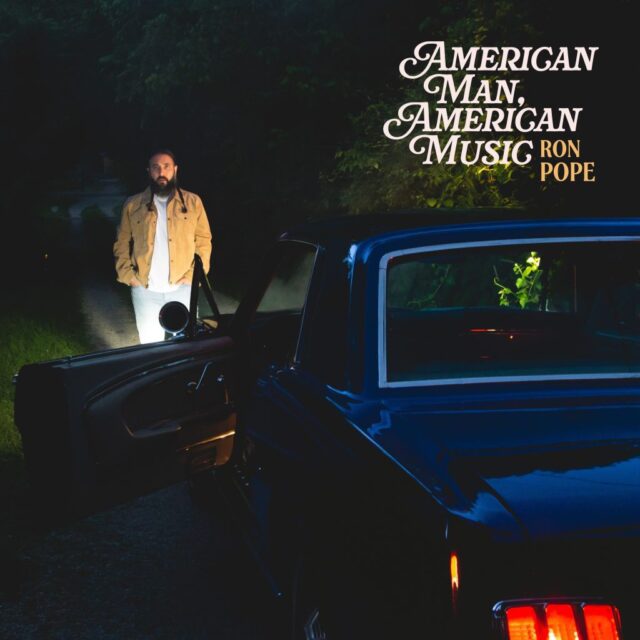

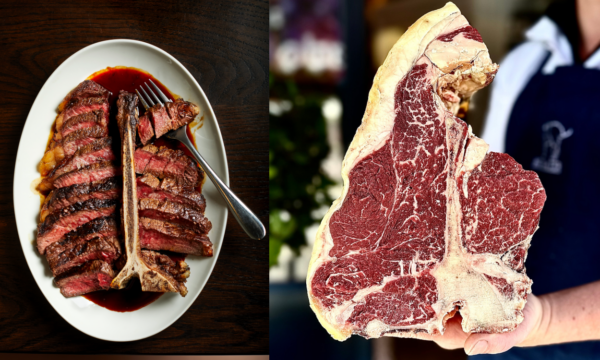
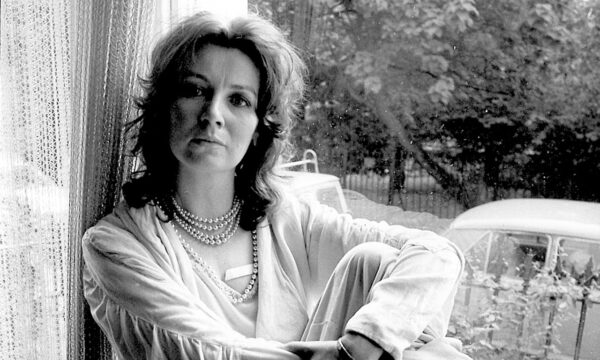
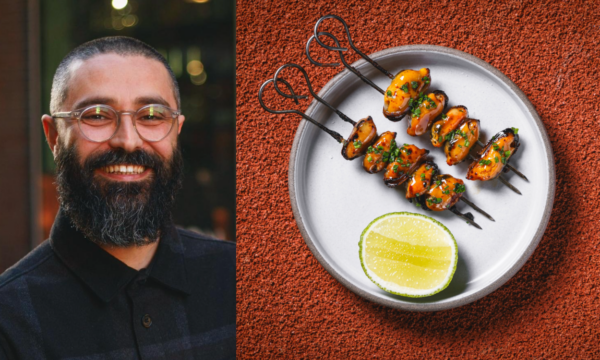
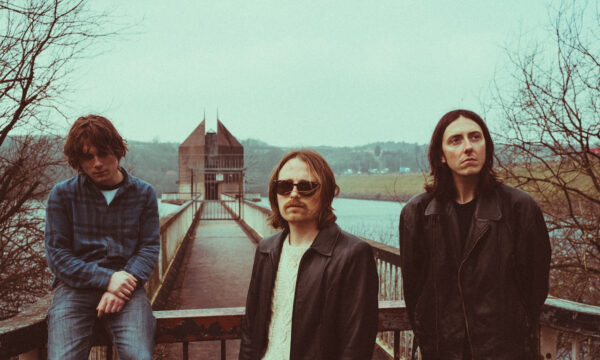
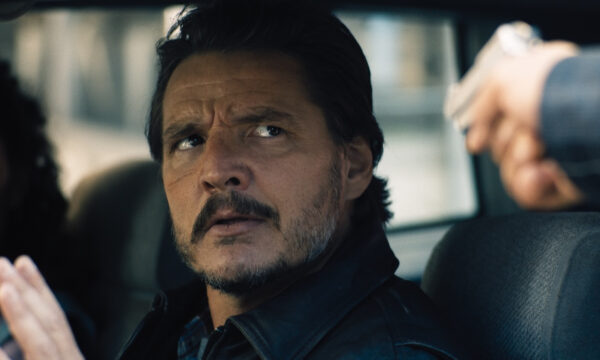
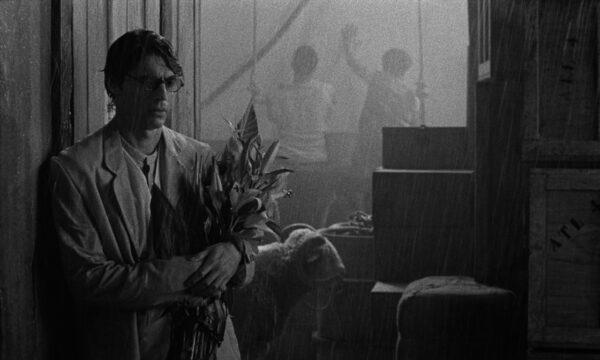
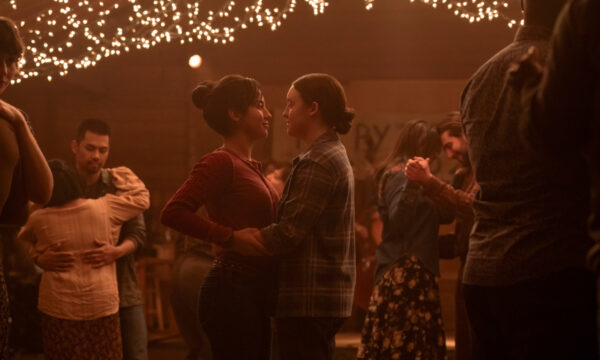
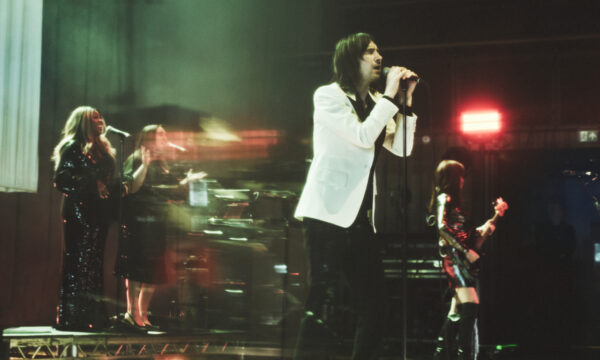
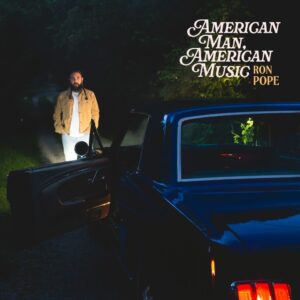














Facebook
Twitter
Instagram
YouTube
RSS